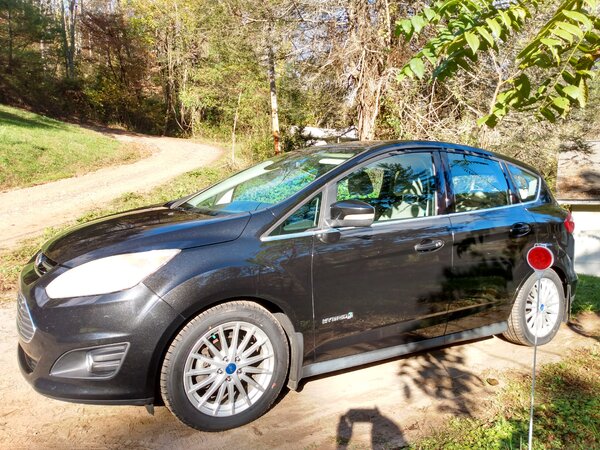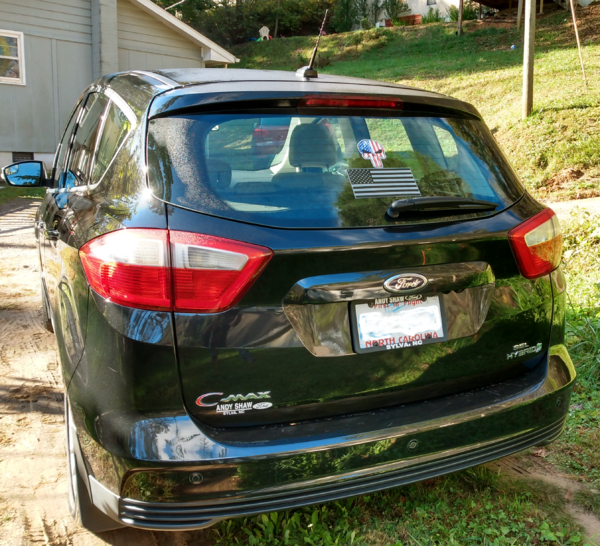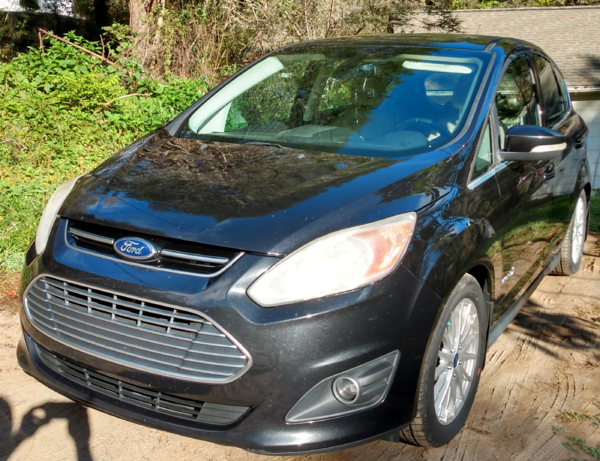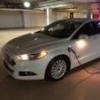Search the Community
Showing results for tags 'C-Max Hybrid'.
-
From the album: NC C-Max Hybrid SEL
-
From the album: NC C-Max Hybrid SEL
-
From the album: NC C-Max Hybrid SEL
-
I love my C-Max Hybrid but travel for work and put a lot of miles on the car, which is why I did not lease. I want to understand if there is an optimal time to trade my car in. For example is there any value to trading in for a 2013 since the 2014's are a year away now or does it come out the same to keep driving until they are available. I purchased in October and have put 3,000-3,500 miles on the car per month. Thank you.
-
Here are the calculations I've done for my parents on their comparison of a C-Max Energi and a C-Max Hybrid. Energi w/ 302A pkg: $32,969 (invoice price not including tax credit) Energi tax credit $3750 Hybrid: $28,944 Hybrid Rebate: $250 Ford Cash Offer: $750 Energi price subject to sales tax: $32,219 Energi sales tax at 6.5%: $2094.24 Hybrid price subject to sales tax: $27,944 Hybrid sales tax at 6.5%: $1816.36 Energi price premium: $4552.88 NPV of Tax Credit $3750 received 8 months after cash outlay based on a .25% APR: $3172.11 Energi price premium after tax credit: $1380.77 Assumptions Electric costs: $.135/kWh including all taxes and fees Gas costs: $3.75/gal Energi EV range: 20 miles Energi estimated real world MPG: 40 MPG Hybrid estimated real world MPG: 45 MPG Energi cost per mile Assumptions EV miles per week: 100 EV Later miles per week: 50 2/3 of total miles from wall charging kWh to fully charge: 6.5 per 20 miles Cost per 20 miles: $.88 Cost per mile EV: $0.043875 Cost per mile EV Later: $0.09375 Cost per 1000 miles: $60.48 Blended cost per mile: $0.06048 Hybrid cost per mile $.083333 Energi cost savings per mile $0.02285 EV miles to recover Energi premium = 1380.77/.049875 = 60,427 miles Based on 2/3 of total odometer miles being EV miles the odometer miles for payback is 90,641 miles If gas prices rise to $4 a gallon then the payback period is sooner. If electric costs rise at the same rate as gas prices then the payback period would be longer. As you can see, the payback period is quite long. As you can also see, there are a lot of assumptions in these calculations. I assume that gas prices will average $3.75/gal over the next 10 years or so. I also assume that their electric rates will average $.135/kWh over the next number of years. I also use the assumptions that the Hybrid will get a year-round average of 45 MPG and that the Energi will average 40 MPG in EV Later mode. I also assume that the electric usage from charging the car will average 6.5 kWh per complete charge of the battery. This should be enough to include the power used by cabin preconditioning when so desired which increases the cost of the Energi. The Hybrid would not have any cabin preconditioning. If the Hybrid were to be run to precondition the cabin then the balance would shift in favor of the Energi. I do not include the costs to install a 240V charger because that is not a given. I also do not include any costs to rewire their garage to support 120V or 240V charging because they need to rewire their house (and are planning to this year) regardless of whether they buy an NRG. In MN there are some things that don't work in favor of these calculations We have high electricity costs compared to other statesWe have lower gas prices than other statesOur cold winters lead to a higher electricity usage to precondition the Energi cabin and lower fuel economyOur relatively high sales tax increases the Energi premium by almost $300However I also made some assumptions that may not be the best predictions for future energy prices If gas prices increase at a faster rate than electricity costs then the Energi is a better deal (this seems more likely)If electricity rates increase faster than gas prices then the Hybrid is a better deal (this seems less likely)Benefits of the Energi not factored in above Warm fuzzy feeling about driving in EV mode around townTime saved on trips to the gas stationTime/money saved due to less oil changesCabin preconditioningDoes anyone else see other factors I should include? Thank you!
- 33 replies
-
- c-max hybrid
- c-max energi
-
(and 2 more)
Tagged with:
-
Ford C-Max Hybrid To Get 25% Better Mileage Than Escape Hybrid FordCMaxHybridForum - Although it’s not set to be revealed to the public until November 2011 at Los Angeles Auto Show, we have the inside scoop on one major change that’s putting the “new” in the new Ford Escape. It’s all about the EcoBoost® – the Escape will offer the most options of that engine ever in a Ford SUV, with, count ‘em, two four-cylinders: the 2.0-liter and a new-to-the-U.S. 1.6-liter. Also available will be the 2.5-liter Ti-VCT four-cylinder. The 1.6-liter, by the way? It’s expected to get higher highway fuel economy than even the Escape Hybrid, which is EPA-estimated at 31 mpg. Also making headlines is more on the plan Ford has to launch the C-MAX Hybrid and C-MAX Energi plug-in five-passenger hybrids next year in North America. The C-MAX Hybrid will feature the first hybrid transmission and lithium-ion battery system Ford has built in-house, enabling it to deliver a 25 percent improvement in fuel economy as compared to the outgoing Escape Hybrid. The C-MAX Energi aims for 500-plus miles of driving range using the battery and engine, more than any other plug-in or extended-range vehicle. Ford developed the new generation of hybrid electric vehicles via its extensive experience with first-generation hybrids, including the Escape Hybrid, the world’s first SUV hybrid. “Using our platform approach to hybridization, developing two choices for customers in the heart of the market with the dedicated, front-wheel-drive Ford C-MAX was our strategy to extend the benefits of hybrid technology to even more customers,” said Derrick Kuzak, Group Vice President, Global Product Development. Ford takes very seriously the fact that today, fuel economy is 2.5 times more important to American customers than environmental concerns when it comes to buying a vehicle. So, to recap: the largest-ever EcoBoost engine lineup, the C-MAX Hybrid to make crazy-good fuel economy and Ford delivering electrified vehicles that are both attainable and meeting real people’s needs. That’s news you can use!








